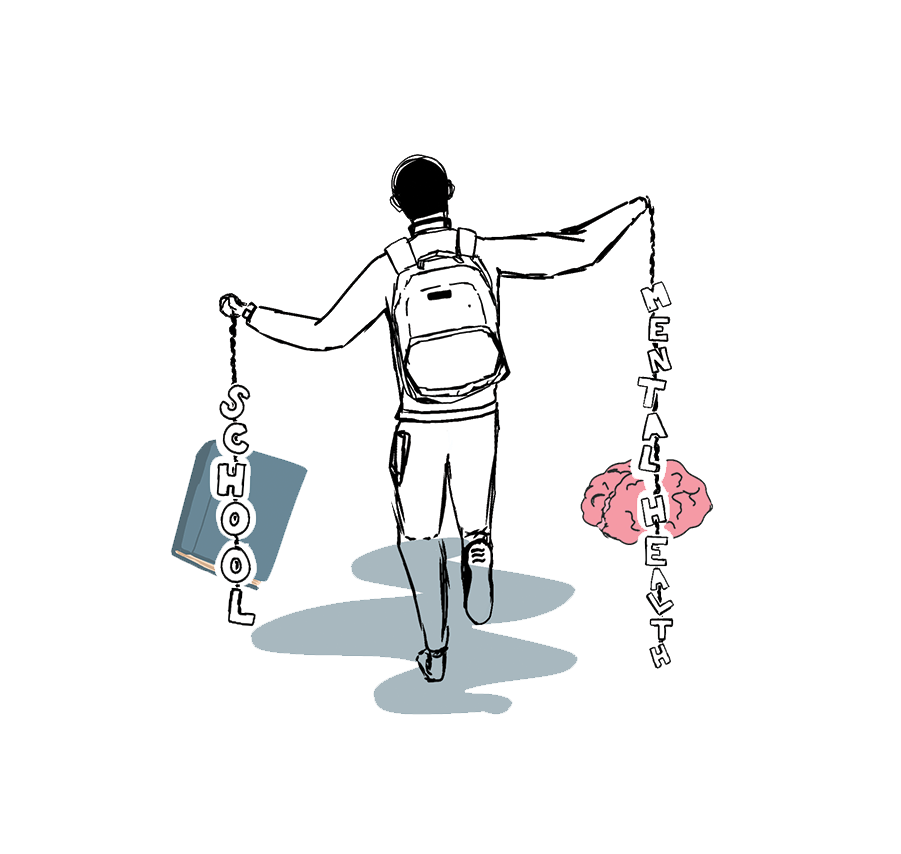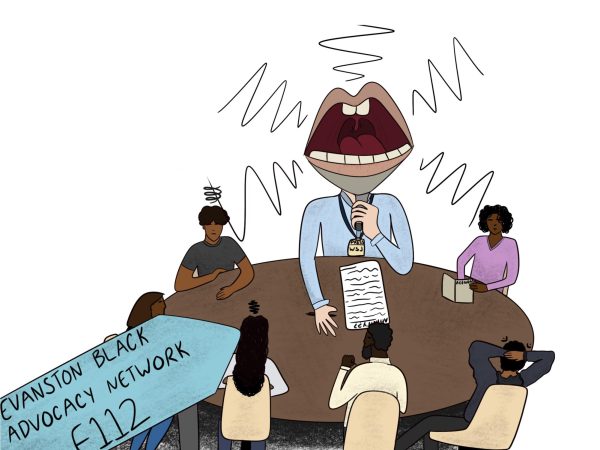Opinion | Mental health days need to be better communicated to students
In the ever-moving and overwhelming cycle of the school day, I often find myself in need of a break. Every week being so full of things to do both inside and outside school, it becomes hard to maintain a good mental head space with the stressors of everyday life. But in fear of falling behind, I push past these feelings, and—somewhere along the way—have put my education over my own well-being. Indicative of the education system, students have gotten used to not truly taking care of themselves, which is incredibly damaging.
In efforts to prioritize student mental health, Illinois has now created a legally-mandated structure that gives students more advocacy over their well-being. Last fall, Illinois Gov. J. B. Pritzker signed a law that allows for five excused absences from school for a student’s mental health, without the need for a doctor’s note. Despite the initial controversy around the idea of mental health days, the bill went into effect on Jan. 1.
“We are changing our system to recognize that people need to take pauses sometimes to just take a breath or actually get support for mental and behavioral health care needs,” Illinois House of Representatives sponsor Rep. Lindsey LaPointe says.
Similar bills were also passed in Arizona, Colorado, Connecticut, Maine, Nevada, Oregon, and Virginia.
The bill states that students who take more than two of the approved mental health days should be referred to appropriate school support services. This gives students a chance to utilize support and gives them greater access to ETHS resources like social workers or psychologists. However, some students have been taking mental health days for years, and although they now have something to use to describe these days, the complexities of being put into contact with a social worker can cause hesitancy.
Making this connection as student-centered as possible and asking students how comfortable they feel with being contacted becomes key in ensuring these connections are actually met.
Although mental health days are now a part of ETHS absence days, little has been spoken about it. The lack of an email or announcement leaves many with questions as to how ETHS will uphold this law and prioritize the well-being of its students.
“I do believe mental health days are an effective strategy, but they’re not widely known about, so I don’t think students actually use them. I personally have never taken a mental health day, mostly because I’m not sure how they work,” explains sophomore Arya Jennens.
ETHS promoted the elimination of finals as a means to help a student’s mental health, so why is the school not vocalizing the importance of mental health days and the fact that students finally have the ability to utilize them? It seems like yet again the topic of mental health of today’s youth is being submerged in a place where it is especially important. Due to this lack of clarity, the implementation of mental health days comes with questions, a prominent one being what happens when students use up their mental health days.
Clearer communication about this vital resource is essential if we want to build a foundation for prioritizing students’ mental health. After all, daunting factors like COVID-19 related restrictions and impacts still play a role in our everyday lives and are something we’re constantly tackling on top of everything else that may be going on.
“I think they are a double-edged sword: they can be beautiful and regenerative for someone in need of rest but can also compound a stressful school work-related situation,” says senior Noa Polish.
If students do choose to take a mental health day, ensuring they have the time to process and deal with the things going on in their lives before subjecting them to more school becomes key in this. Mental health days may also cause students to fight against toxic productivity, making it difficult to feel like you can truly take a break out of fear you’re not keeping up with your schoolwork.
“I like the idea of mental health days but, personally, I’d be too scared to take them. If school is stressful enough to cause mental health days, missing multiple 85-minute periods wouldn’t be worth the day off to me,” says senior Suli Kamholtz-Roberts.
Although we can give students the flexibility to make up their work in an allotted time if they chose to take a mental health day, Kamholtz-Roberts addresses the larger issue of why students feel the need to take a mental health day.
The unfortunate truth is, the education system is not set up to prioritize students’ mental health. School creates an atmosphere of stress and imposes on students’ ability to take care of themselves. This is why better-structured support is needed. Although mental health days are a good first step in giving students a needed break, the school system’s design invites burnout and anxiety for students, making these mental health days a half measure to the change we need to see.
“Students will take mental health days regardless of whether they’re sanctioned by ETHS, but the school can better support us by implementing guidance for staff so that we aren’t bombarded with busy work when we return from mental health days. Mental health days shouldn’t be the start of cycles of avoidance-induced absences,” Polish says. “Mental health days are radical in a society that preaches a message of grind culture. In general, we need more facetime with our grade-level psychologists and social workers.”
Your donation will support the student journalists of the Evanstonian. We are planning a big trip to the Journalism Educators Association conference in Philadelphia in November 2023, and any support will go towards making that trip a reality. Contributions will appear as a charge from SNOSite. Donations are NOT tax-deductible.








